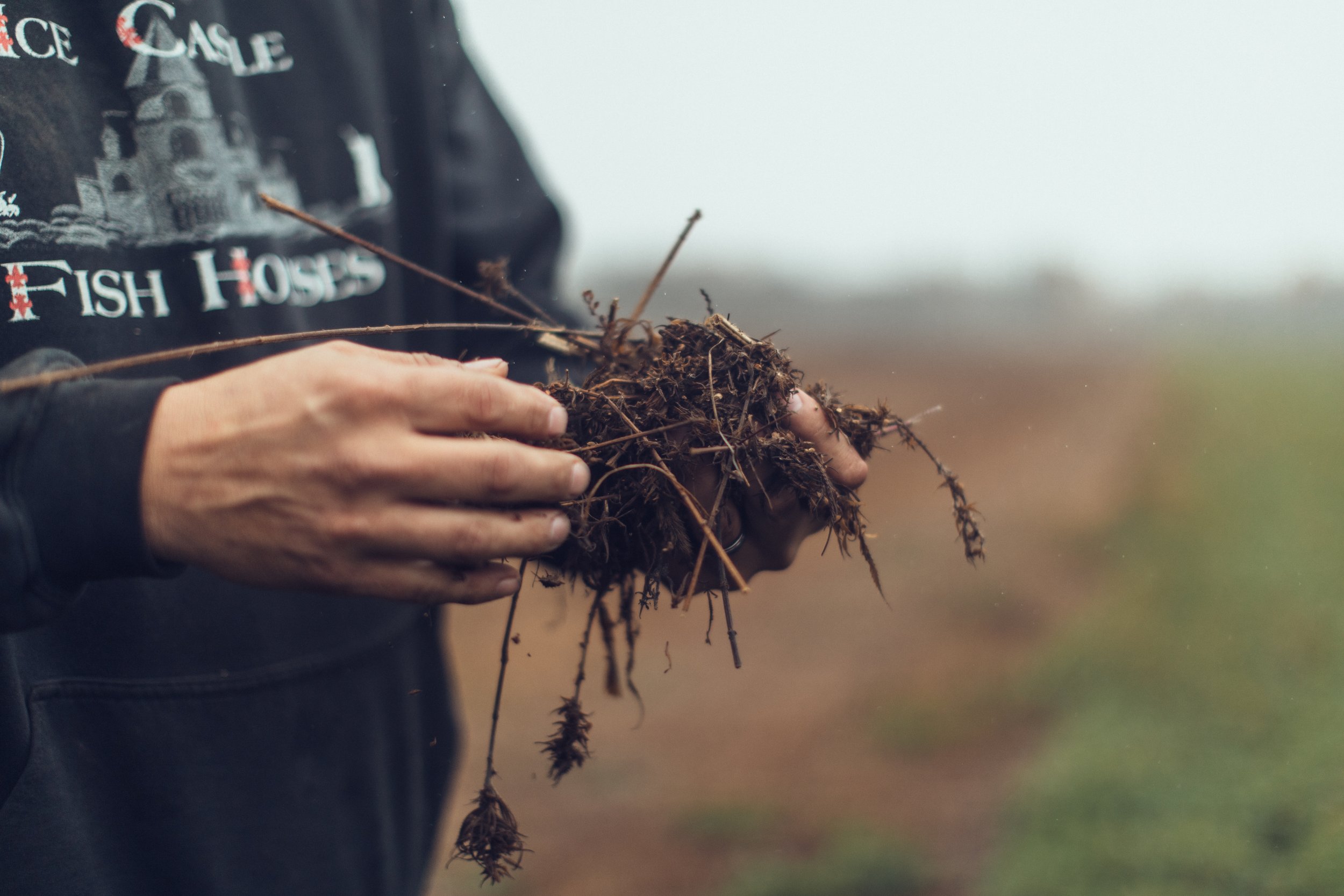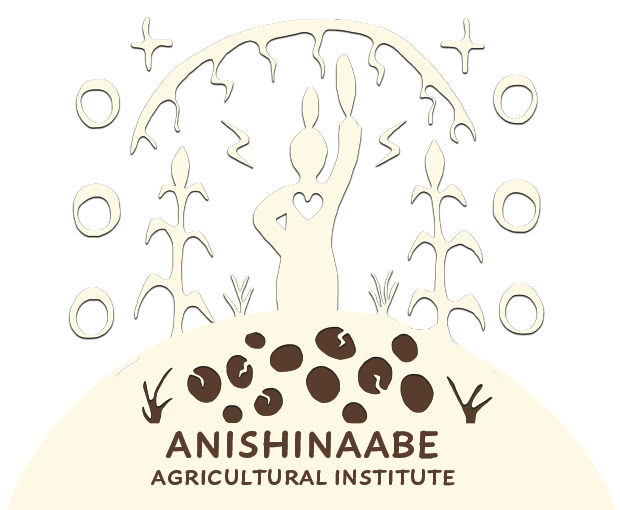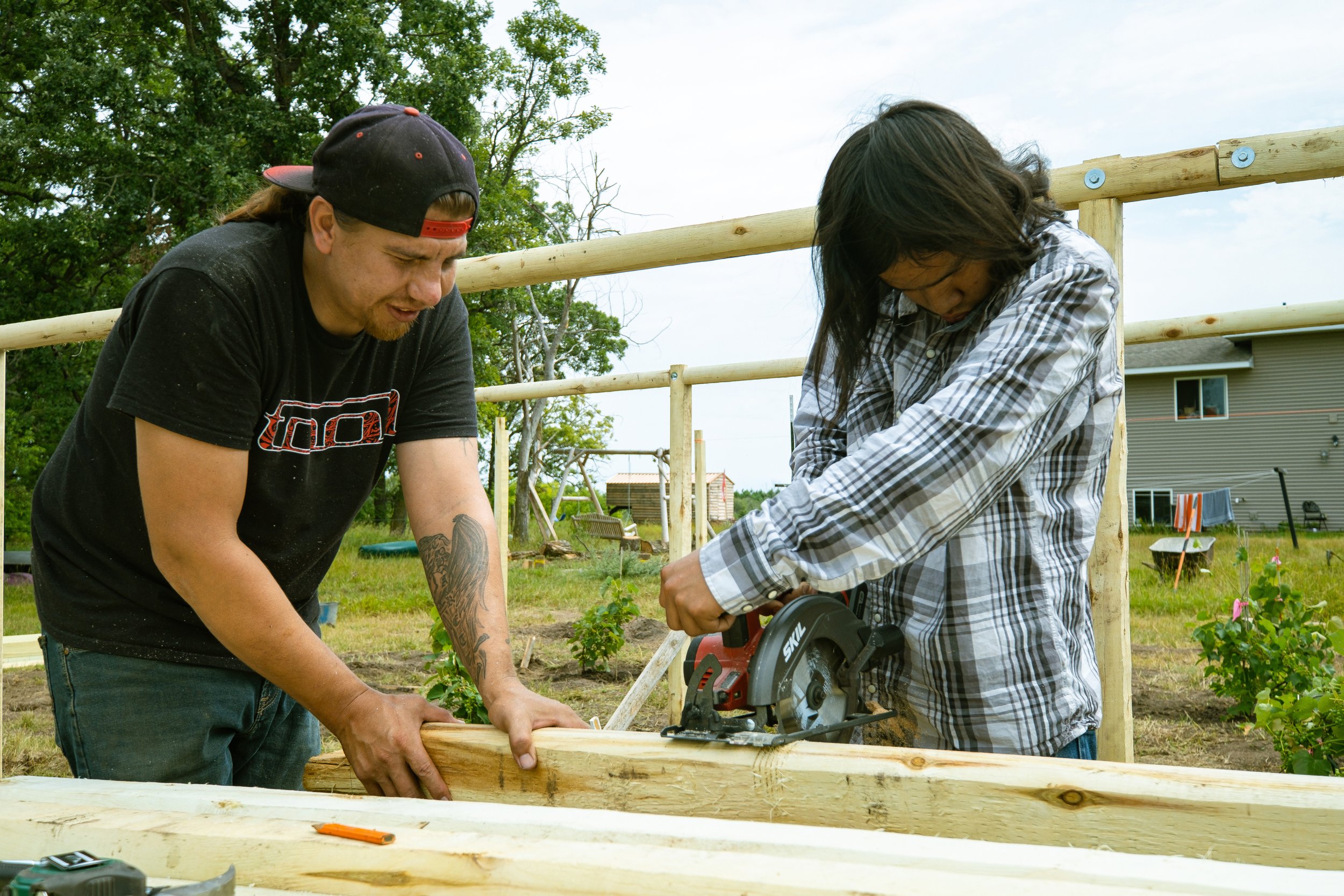
Food sovereignty, post-petroleum agriculture, and a brighter future for our Indigenous youth.
Welcome to the New Green Deal.
Here's what we've been up to
〰️
Here's what we've been up to 〰️
We are hiring!
We are looking for a Garden Coordinator -
Anishinaabe Agriculture is seeking a coordinator for community gardening projects working in the village of Pine Point and nearby. We grow traditional varieties of indigenous crops, such as squash, corn, beans, potatoes, mushrooms, Jerusalem artichokes, and tobacco, along with producing gardens including salad and flowers, onions, tomatoes, peppers, and other essential foods. We preserve and store what we can for our community to eat over winter and provide for community groups and ceremonies. We also distribute food throughout the year to the wider community.
This integrated position involves working with plants, working with animals, and interacting with volunteers and community members. This person will help coordinate up to our garden sites, with the support of youth and intern staff as well as experienced horse farmers. The garden coordinator should be familiar with organic and biodynamic approaches to farming as well as have some interest and capacity to work with organic fertilizers produced on-site, including biochar, fish emulsion, manure, composting, and more.
Additionally, we are developing hemp and goat-related enterprises. We are undertaking research on hemp varieties and seed selection with the University of Minnesota. We are also developing a pilot project cooperative for the production of halal goats and goat cheeses, which should be considered part of the possible scope of work. These products will be used for local consumption and sold at three or four regional restaurants and markets.
This is a six-month job but could turn into a full-time job.
Duties:
-
Know where things are and keep track of plant starts at greenhouses and then distribution to appropriate farm gardens - You will keep track of everything we have growing across the farms, including making maps of all the gardens, knowing how many seedlings are started, when to plant different vegetables, and when these will become available for sale, or eating.
-
Understand and work to implement soil amendments, watering, and weeding to enhance the productivity of gardens. There are staff and volunteers to oversee most of the daily watering and weeding of gardens. You will help us organize across farms, reckoning with climate change and incoming droughts, and with your knowledge and ours, adapt our gardens for these times, illustrating food security.
-
Assist in supervising up to four garden interns at a time, including delegating work duties, allocating resources/time, and coordinating with the larger AAI staff.
Coordinate youth volunteers for the gardens.
Coordinate with community groups to deliver food and flowers to our local elders and neighbors, as well as to two or three retail outlets.
Work with these same people and more for timely harvest and work with community on food preservation and storage - we do canning, freezing, pickling, drying and freeze-drying, and are open to other methods.
-
Reporting and documentation of both growing conditions, fertilizers, & other enhancements and production.
-
Some support for larger harvesting, i.e., sunflower seeds for oil, & moving these to processing.
Position Requirements:
College degree, and proven experience with gardening.
Excel Spreadsheets, and report capacity.
Drivers license.
Excellent social skills: Ability to work in a multicultural experience with compassion and commitment to growing human potential as well as vegetables.
Benefits- Housing can be provided locally, and the garden coordinator has access to excellent and varied community events and a lot of food. Possible long term position.
Rate of Pay- TBD $4000/month
Reach out to us today if you are interested!
We are working to restore foodways, rematriate seeds, and make a new economy; one based on local food, energy, and fiber. Our interest is in building the next economy, we refer to this as Lighting the Eighth Fire or the Sitting Bull Plan, known commonly as the Green New Deal. That transition needs to be organic, innovative, and equitable.
Food Sovereignty
Growing a localized food economy on the White Earth Reservation where access to clean, fresh produce is extremely limited. Removing the reliance upon the industrialized agriculture food system by reviving our ancestral farming practices.
Hemp
Hemp is a powerful source of carbon sequestration as well as bio-remediation. From fiber to oil, hemp’s many uses and natural environmental benefits make it a perfect piece of the Green New Deal.
Youth Programs
AAI offers a range of youth programs to help guide indigenous kids and set them onto the path of Mino-Bimaadiziwin, the good life. Developing skills that will propel indigenous youth to a brighter future.
Our Vision
From the seed to the table, from the animal to the plate, Anishinaabe Agricultural Institute is helping to restore a healthy food system to our people.
We Have the Knowledge We Need.
Indigenous people know 7000 crops and one million varieties of seeds, while the majority of industrial agriculture has whittled this down to 135 major crops and 103,000 varieties.
Major corporations like Monsanto and Syngenta talk about climate change adapting varieties they are introducing; using billions of dollars to create climate smart varieties. One-hundred, thirty-six million (USD) is the average cost for climate smart seeds per species. In the meantime, Indigenous nations worldwide are adapting our pre-petroleum varieties to the times ahead.
Combined, Indigenous farmers are producing today 70% of the world’s food. That’s our work.
We are working to restore food ways, rematriate seeds, and make a new economy; one based on local food, energy and fiber. We have two branches: Winona’s Hemp for the textiles of the future and Anishinaabe Agriculture, our tax-exempt sister organization focused on regenerative and post-petroleum or reduced petroleum agriculture and restoration of traditional varieties of our food.
It’s time for a New Green Revolution
Tribal communities across the country are looking to hemp as a new way to build economies that don’t depend on extraction or fossil fuels. At Anishinaabe Agricultural Institute, we’re on the front lines of developing new varietals and techniques, as well as helping tribes grow their own green economy.
Ambe Omaa!
Sign up to be the first to know about our events.



















